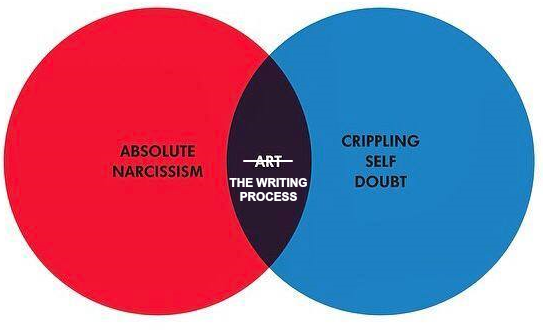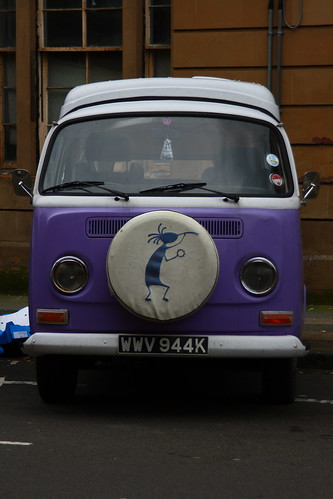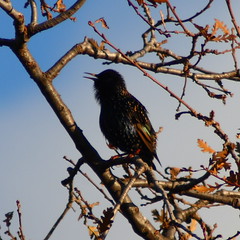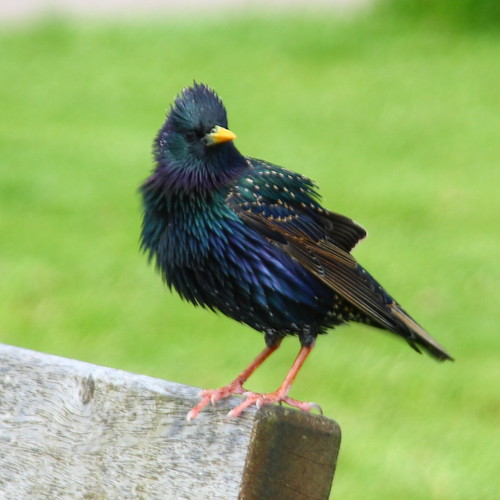“There once was a time when Thoreau wrote, “I have great faith in a seed. Convince me that you have a seed there, and I am prepared to expect wonders.” By the power vested in everything living, let us keep to that faith. I’m a scientist who thinks it wise to enter the doors of creation not with a lion tamer’s whip and chair, but with the reverence humankind has traditionally summoned for entering places of worship: a temple, a mosque, or a cathedral. A sacred grove, as ancient as time.” ~ Barbara Kingsolver, Small Wonders
Month: May 2015
{about write}
Hat tip, Jess Baker’s blog.
{the audacity of a foreigner appropriating}
“He said my writing does not show him Africa. Keep in mind this American man has never visited any country in Africa. He said i was writing about Africans driving and listening to Sade in air-conditioned cars. He just couldn’t identify with such. He said it like i should apologize for ever portraying my people as some modern day normal Africans. It is as though if Africans are not killing each other or dying of a disease; then our stories are not valid. As a Nigerian, i have never witnessed war and i know what listening to Sade in an air-conditioned car while in crazy Lagos traffic feels like, yet an American who has never stepped foot in my continent tried explaining my country to me. He said, “i am sorry, this is just not believable….” and then as i tried to hold my anger, i understood the ‘burden’ of writing an African story.
The anger most African writers feel when others seem to know so damn much about our own motherland. The terrible idea that Africans are a certain way is disheartening. I remember how my friend in Lagos laughed as i told her about the American. She laughed loud at his foolishness and cursed him in Yoruba. You cannot tell me what an African city looks like, you cannot tell me what a Nigerian city looks like. You cannot tell me how to write about Africa only if it shows her people as helpless, only if it feeds into your stereotype. How can a foreigner tell us about our own land? They want to shake their head, read only about struggles and discuss it in their book clubs. The audacity of a foreigner to tell me how to write about my people.” – Ijeoma Umebinyuo
I ran across this quote courtesy of Ursula Vernon’s tumblr, and it resonated with me. One of the …twisty things about writing young adult fiction as an African American person is being told… that my story, the way I’m telling it, isn’t valid. I spend a lot of time in the quiet of my inner mind, trying to wrestle through the ambiguous feelings of “something is wrong here,” and to identify what is being implied or directly told to me, so that I can work through it. It doesn’t help that I am slow to react to things at times — slow to be able to pinpoint the root of a sad or negative feeling I might be having. I don’t always like words like “microaggression” because they’re kind of catchy and overused at the moment, but I understand the effect — a tiny wrongness that builds up and builds up and over time, you end up with a mirror that obscures a face instead of reflecting it, because the surface has been scratched with a thousand tiny cuts.
And, now that a person has identified this, found the root of their anger, what are they supposed to do about it?
That, I don’t know yet. What do we always do, when we’re misunderstood? Keep talking? Talk louder? Decide it doesn’t matter? Today, I couldn’t tell you.
{okay, break is over, time for the other pantoum}
Working in young adult literature can be a little weird, because we’re marketing an idea of youth to the youthful, and everyone has their perception of youth culture and what’s cool, and sometimes it can feel like Fourth Grade: The Later Years, and can be a real bummer. Recently, the experience of having a copy editor tell me that a word usage or whatever “isn’t what people actually say,” (actual phrase: “Nobody says that”) despite a.) me being “somebody,” b.) me having heard that exact word and stuff like that daily growing up and even now, I realized anew that the world is full of different perceptions, and only hubris – and privilege – allow us to be so blind to the experience of another to the extent that we blindly insist that ours is the only valid reality. If we’re smart, we greet these realizations (“diminishments,” microaggressions) with a philosophical mien. Stuff happens. People are weird. It’s the scrapes, slings and arrows of life. Still, exchanges like this can make you just feel weary and stupid and useless and — out of it.
I was thinking about that experience when I read Poetry Sister Kelly’s philosophical pantoum about, among other things, aging, and read the lines, Do not go gently into that good night– / Is that the best advice we can hope for? and found myself irately asking the same question, from a different perspective. Don’t engage the trolls? Is this the best advice we can hope for? Let them put you into whatever little box that suits them, and play nicely? Do I have to play this grade school game of “Who is cooler?” on their field, by their rules? Do I have to let this person work their way under my skin, and make me feel less than?
Short answer, HECK NO.
Kelly’s poem goes on, We have to lose ourselves. In time / we’ll find something better, a place we can / take back words, or let them go…. All good options, yeah? Time and losing ourselves, and finding our self again. But, the one thing that this poem emphasized for me is CHOICE. We still get to choose our attitude, our take on things, our path. No matter what.
I choose not to feel out of it, stupid, and unhip. I choose to be, like the cars of the late seventies, vintage and classic.
classic*
Ignition – all my plugs throw out a spark,
My engine purrs and builds into a roar.
The pipes and pumps are working fine tonight –
Road sings to rubber on the ribbon-track.My engine purrs and builds into a roar —
We call old “vintage” in a ride this fine —
Road sings to rubber on the ribbon-track
Croons out, “Pull over if you can’t keep up.”We call old “vintage.” In a ride this fine,
Who cares if we must add a little oil?
Cry out, “Pull over. If you can’t keep up
Get belted in, love. Gun it and hold on.”Who cares if we must add a little oil?
The pipes and pumps are workin’ fine tonight.
Get belted in. Love, gun it. And hold on –
Ignition – all my plugs are throwin’ sparks.*with love to e.e. cummings, for “she being Brand / -new”. – You imagined us cars, e.e., but we’re in the driver’s seat.
{may poetry 7: pantoum}
Okay, I’m somewhat of a bird …freak. I just know what my retirement holds, someday I’m going to turn into one of those ardent, crazed birders (looking at you, Ursula Vernon and Charlotte’s Mama) who travel to distant lands on the bare hope of seeing a bird for their life list. I just like taking pictures of them for now, but this is how it starts, I’m sure. Photography is a gateway drug to birding… But, it was unavoidable, this time, going through my bird pictures. Because the form of the month for the “Twelve Forms, Twelve Poems” 2015 Challenge the Poetry Seven did this month had an extra challenge to our pantoums, since we’ve proved already that we can do them most of the time – we were all meant to write a poem and use one of two words “certain” and “flight.” The words just seemed to go together, and be something about birds, to me.
Of course, I then went and wrote a pantoum I just LOVED, unrhymed for one, which is actually more of a challenge for me – but using NONE OF THOSE WORDS. *sigh*
I’ll save that one for later, but after reading and working through my Sisters’ poems on the Google Docs form we use (and never was there such a document full of crossed out, highlighted, margin-note-jotted poetry) I felt like I should make another effort – as some of them have been doing. Surely, if I could do one poem I was happy with, I could at least make the effort to play by the rules we all agreed on, use “certain” and “flight,” and make another creditable attempt.
Remember what I was quoting the other day about poetry helping the poet argue with herself, and what the fantabulous Mr. Rosen said about form being the ring in which young(ish) poets wrestle? The form just pinned me into something that. just. worked.
(as)certain flight
birds line their nests against hard truths we know —
stockpiling soft and insulating white —
and fragile souls protect, against life’s blows:
this evolution ends in fall or flightstockpiled with softness. insulating, white —
a downy landing, real life in disguise
then evolution ends. With fall or flight,
they flail into this world, and then they rise.A downy landing, real life? In disguise
(they, trying to find wisdom as they fledge)
will flail into this world and then will rise,
but first, life’s lessons push them from the edge.while trying to find wisdom as you fledge,
recall the ones who caught you as you flailed –
as lifelong lessons push you to the edge,
think what you owe to gain the heights you scaled.recall the ones who caught you as you flailed;
now fragile, they protected you from blows
think. what is owed to gain the heights you scale
who lined your nest? Hold true the ones you owe.
The other sisters pantoum-ing around the blogosphere. Here’s Dr. Tricia Not-A-Farm-Wife @ The Miss Rumphius Effect, Laura’s two for teachers @ Writing the World for Kids, Andi’s poem on Star Wars and true flight @ A Wrung Sponge, Sara’s seductive tidal moon, @ Read, Write, Believe, and Kelly published one yesterday, and one today @ Writing and Ruminating, and Liz Garton Scanlon all at sea, and seeking identity.
The Space City Scribes (I love it – Space City = Houston) are hosting Poetry Friday today, so do pop on over. Meanwhile, I’ll share my other pantoum …soon, but for now, I think I’ve earned a little break…!





